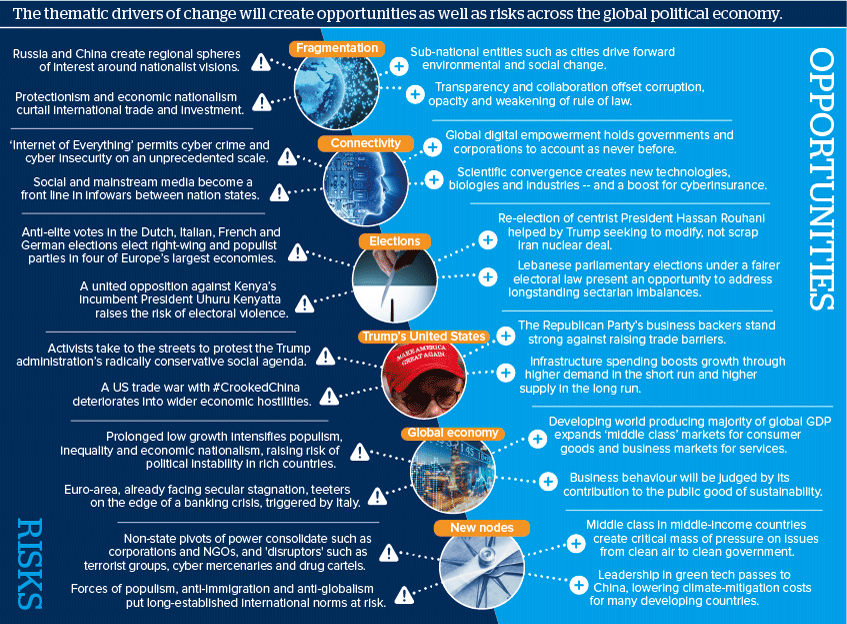Risks and opportunities, 2017: Part 1
Geopolitical stress will be widespread as the world re-orders
Source: Oxford Analytica
Outlook
An isosceles triangle of power between the United States, Russia and China will contest the fragmenting unipolar post-Cold-War order as global power reforms around new nodes and orders.
The old orthodoxies of power, influence and civil society will strain against potent new forces of populism, political insurgency and, in many parts of the world, nationalist visions of politics and economics, with often unpredictable outcomes.
However, deep drivers of change such as new technologies, demographics and environmental pressures will push the global economy forward even as greater protectionist and economic nationalist tendencies seek to hold it back.
Impacts
- Both liberal free-market capitalism and electoral representative democracy will be questioned, even where both appear deeply rooted.
- Military defeats in Iraq and Syria will press Islamic State to continue high-profile operations to demonstrate it still has potency.
- Regulation everywhere but in the United States will bend further in the direction of a lower-carbon future.
- States will start to construct a framework of norms to govern cyberwar, much as were created in the 1950s for nuclear war.
